
What Is Trimethylglycine | Health Benefits | Similar | Popular Products | FAQ | Warnings And Side Effects | Disclaimer
In our quest for optimal well-being, we often encounter novel substances that hold the promise of transformative effects. Today, we shine the spotlight on Trimethylglycine, a compound that is increasingly gaining recognition for its potential to revolutionize personal health in 2023.
In this blog, we will unravel the mysteries surrounding Trimethylglycine, commonly known as TMG, and delve into the scientific intricacies that make it a captivating subject of study. From its origins to its diverse applications, we will navigate through the latest research and emerging trends, empowering you with the knowledge to embark on your personal health revolution.
![]()
What Is Trimethylglycine?
Trimethylglycine, or TMG, is a fascinating compound that has been gaining attention in the world of health and wellness. Its name, trimethylglycine, reflects its chemical structure, consisting of three methyl groups attached to a glycine molecule. Also known as betaine, TMG is a naturally occurring substance found in a variety of foods, including beets, spinach, and whole grains. It is especially abundant in beets, which is why some supplements derive TMG from beetroot extract. Additionally, spinach, whole grains, and other plant-based foods contribute to the intake of this intriguing compound. (1)
![]()
Health Benefits:
As the scientific community delves deeper into the properties of trimethylglycine, a growing body of research suggests that this compound holds significant promise for various aspects of health and wellness. Here are some potential health benefits associated with trimethylglycine:
1. Cardiovascular Support:
One of the standout features of trimethylglycine is its potential impact on homocysteine levels. Homocysteine is a naturally occurring amino acid, and elevated levels have been associated with an increased risk of cardiovascular issues. Research indicates that TMG may play a role in regulating homocysteine levels. (1,2,3)
2. Liver Function:
The liver, a metabolic powerhouse, relies on various processes for detoxification and overall function. Trimethylglycine appears to play a role in supporting these functions, potentially influencing the metabolism of fats and aiding in detoxification processes. This aspect of TMG’s action has sparked interest in its potential benefits for liver health. (1,4,5)
3. Exercise Performance:
Trimethylglycine also may offer benefits in terms of exercise performance. Some studies propose that TMG supplementation could enhance endurance and reduce fatigue during exercise, making it an area of interest for athletes and fitness enthusiasts. (1,6,7)
4. Cognitive Health:
The brain’s intricate network relies on neurotransmitters for communication between cells. Trimethylglycine’s involvement in methylation processes extends to the production of neurotransmitters, suggesting a potential link between TMG and cognitive health. While research in this area is ongoing, the connection between trimethylglycine and brain function holds promise for future insights. (1,8,9,10)
5. Mood and Stress Management:
There is some evidence to suggest that trimethylglycine may play a role in mood regulation and stress management. The compound’s involvement in methylation processes, including neurotransmitter production, raises the possibility that it could influence aspects of mental well-being. (1,5,11,12)
6. Inflammation Modulation:
Inflammation is a complex process implicated in various health conditions. Some studies propose that trimethylglycine may have anti-inflammatory properties, potentially contributing to the management of inflammatory responses in the body. (1,4,13)
It’s essential to note that while the potential health benefits of trimethylglycine are promising, individual responses can vary. As with any supplement or dietary consideration, consulting with a healthcare professional is advisable, especially for those with pre-existing health conditions or those taking medication.
![]()
Similar To TMG:
In the vast landscape of nutritional compounds, several substances share similarities with trimethylglycine, either in structure or function. Understanding these kinships provides a broader context for appreciating the potential impact of trimethylglycine on health. Let’s explore some compounds that bear resemblance to TMG:
1. Dimethylglycine (DMG): Sibling in Structure
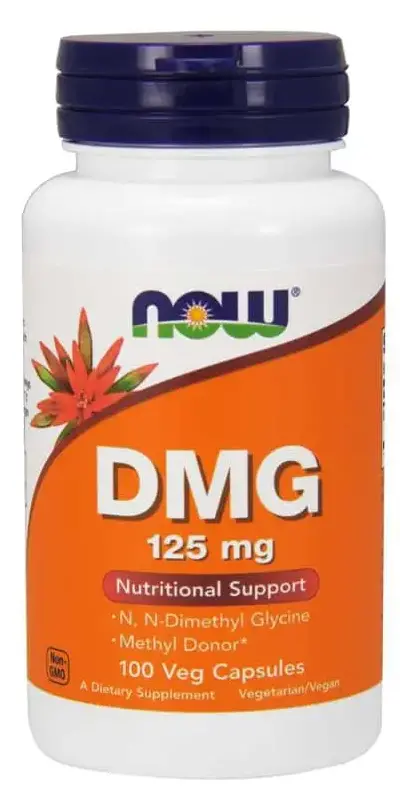
As the name implies, dimethylglycine is a close sibling to trimethylglycine, differing only in the number of methyl groups. While TMG has three methyl groups, DMG has two. Both compounds participate in methylation processes, and DMG is often considered a precursor to TMG in the body. Studies suggest DMG might enhance oxygen utilization and boost energy production, potentially improving athletic performance and reducing fatigue. Additionally, it’s explored for its role in supporting cognitive function and immune response. (14,15)
Ultimately, the choice between TMG and DMG depends on your individual needs and goals. If you prioritize methylation support for cardiovascular health, TMG might be the stronger contender. However, if you seek an energy-boosting and potentially cognitive-enhancing ally, DMG could be a good fit.†
2. Methionine and Folate: Allies in Methylation
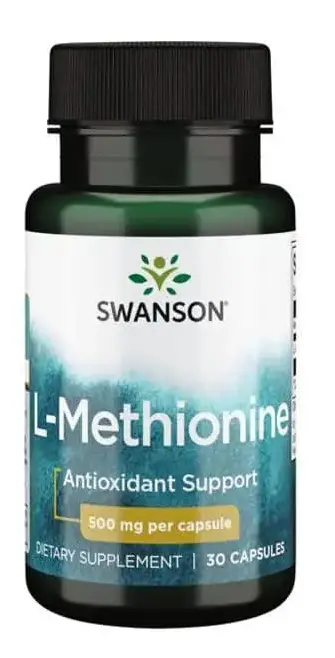
Methionine, an essential amino acid, and folate, a B vitamin, are integral players in the methylation pathway alongside trimethylglycine. While folate contributes to the regeneration of the co-factor necessary for methylation reactions, methionine provides the initial methyl group. The collaboration among these compounds highlights the interconnected nature of the biochemical processes involved in maintaining health.
L-methionine cuts straight to the chase, readily providing the raw material for methylation reactions. This can be particularly helpful if your body needs a quick methyl boost for functions like DNA repair or homocysteine metabolism. But L-methionine isn’t just a one-trick pony. It’s also a vital building block for protein synthesis, supporting tissue repair, muscle growth, and enzyme production. (16,17,18)
3. Choline: Methyl Donor Companion
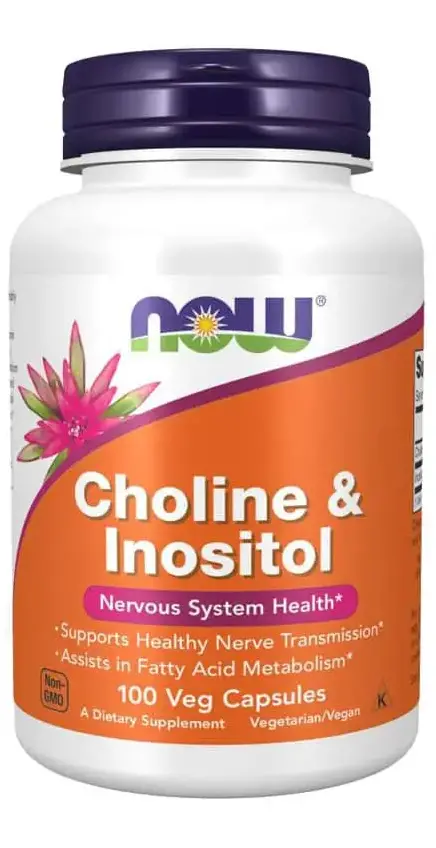
Choline, often grouped within the B-vitamin complex, serves as a methyl donor in various biological processes. While it differs structurally from trimethylglycine, choline shares the role of contributing methyl groups for methylation reactions. Both compounds are involved in processes crucial for cell membrane structure, neurotransmitter synthesis, and overall cellular function. Additionally, choline is essential for proper brain development in the womb, making it a crucial player in prenatal health and beyond. (19,20,21,22)
4. S-Adenosylmethionine (SAMe): Methylation Dynamo
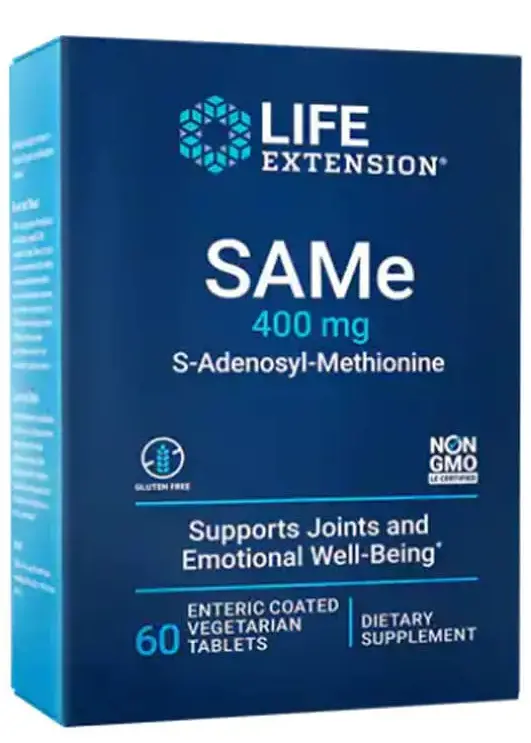
Like trimethylglycine, S-adenosylmethionine, or SAMe, is a critical player in methylation processes. SAMe is involved in the synthesis of neurotransmitters, DNA, and various proteins. While SAMe differs structurally from TMG, their shared role in supporting methylation underscores the importance of these processes in maintaining optimal health.†
In addition to their shared roles, SAMe plays a crucial role in the synthesis of mood-modulating neurotransmitters like dopamine and serotonin. This makes it a potential ally for mood regulation, cognitive function, and even pain management. SAMe also acts as a methyl donor for protein synthesis, impacting everything from muscle growth to enzyme production. This versatility makes it a potential player in overall tissue health and cellular function. (23,24,25,26)
![]()
Popular Products:
In this section, we explore some of the popular trimethylglycine products making waves in 2023. From innovative formulations to tried-and-true classics, let’s navigate the diverse landscape of products that could play a role in your personal health revolution. Whether you’re a seasoned wellness enthusiast or just embarking on your journey, the options available may hold the key to unlocking the transformative power of trimethylglycine for your well-being.

Life Extension TMG is a dynamic supplement available in both convenient capsule and versatile powder forms. With each capsule containing 500mg of trimethylglycine, a full serving features a potent 1,000 mg of trimethylglycine. For those who prefer a customizable approach, the TMG Powder provides 500 mg per serving, allowing flexibility in adjusting your intake to suit individual preferences.
The manufacturers recommend taking two capsules in the morning, while the powder directions recommend taking one rounded scoop one to two times daily. Notably, the synergistic effect of TMG is enhanced when taken alongside co-factors such as vitamins B6, B12, and folic acid, promoting a comprehensive approach to your wellness journey.
Life Extension TMG Review By Lily: “My primary physician suggested to take TMG along with several other B vitamin supplements. I just started taking this with the Complete B complex supplements as they complement each other. My blood tests showed that I needed both so I’m hoping these are helping with my overall health.”
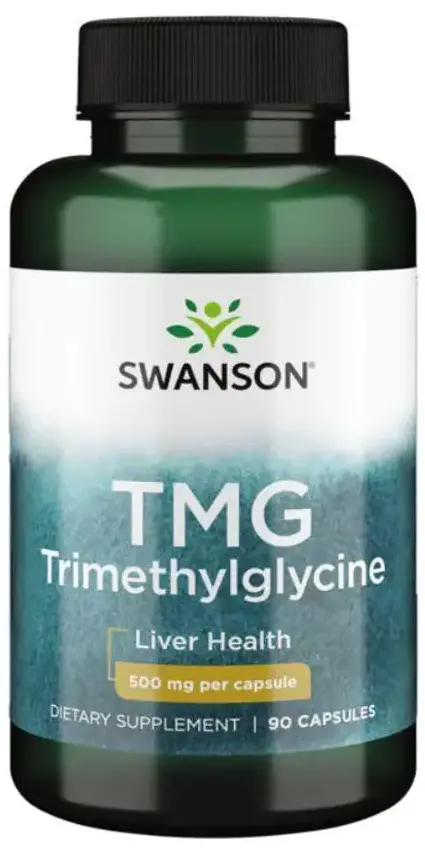
Swanson TMG Capsules are packed with 1,000 mg of Trimethylglycine per serving; these capsules offer a convenient and potent way to incorporate this essential compound into your daily routine.
The manufacturers recommend taking two capsules per day with water. For optimal results, it is suggested to incorporate these capsules with your first meal of the day, preferably breakfast.
Swanson TMG Review By Jen: “Have a nutritionist and she recommended this TMG. Everyone is different what, works, however I was having lots of itching of skin all over body can’t sleep been 6 months crazy! Thinking food allergies and trouble Shooting. I found that the main cause of my itching was liver gallbladder issues. I’m 30 eat well do intermittent fasting and cupping , fascia blasting whole body. The detox from all I’m sure is causing my liver to be overloaded. Taking this before a meal has cured me. No itching at all at night. I also believe liver issue comes at night for some reason. I also take other supplements but this was key. I was also told to take “ Douglas Labs Bilex” but felt like it made me more itchy? I need to trouble shoot that again. This TMG also helps with mood disorders I do feel a bit calmer. Making up for many months lost sleep.”
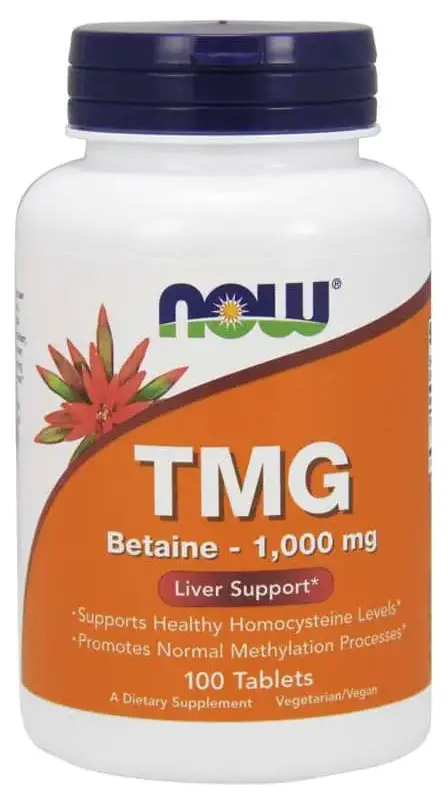
NOW TMG Tablets Deliver a potent 1,000 mg of Trimethylglycine per tablet for optimal nutritional support. Crafted by NOW, a trusted name in the wellness industry, these tablets offer a convenient and versatile way to incorporate the benefits of TMG into your daily routine.
NOW suggests taking 1-3 tablets twice daily, preferably with food. This adaptability allows you to seamlessly integrate NOW TMG Tablets into your daily schedule, providing you with the power of Trimethylglycine to support your overall health and well-being.
Also available by NOW:
NOW TMG Tablets Review By William: “Have used this supplement for a long time, so I knew what to expect with the product, but your price was cheaper than everywhere else I looked! Delivery was fast, too!”
![]()
Trimethylglycine FAQ:
As the exploration into the realm of trimethylglycine unfolds, it’s only natural to have questions about this intriguing compound. Here, we address some frequently asked questions to provide clarity and insights into the world of trimethylglycine:
Is TMG the Same as Betaine Anhydrous? |
|---|
| Though often used interchangeably, TMG and betaine anhydrous aren’t the same. While both are natural methyl donors with similar health benefits like cardiovascular support and athletic performance, they differ in structure and absorption. Betaine anhydrous, with its stable form and faster uptake, might be slightly more effective.† |
Are There Natural Sources of Trimethylglycine? |
| Yes, trimethylglycine is naturally present in various foods. Beets, spinach, and whole grains are notable sources. Some supplements also derive trimethylglycine from these natural sources.† |
Is Trimethylglycine Safe? |
| Trimethylglycine is generally considered safe when used as directed. However, as with any supplement, it’s advisable to consult with a healthcare professional, especially if you have pre-existing health conditions, are pregnant, or are taking medication.† |
Are There Any Known Side Effects of TMG? |
| When used as directed, trimethylglycine supplementation is generally well-tolerated. However, excessive intake may lead to side effects such as nausea or gastrointestinal discomfort. It’s essential to follow recommended dosages and seek guidance from a healthcare professional.† |
Can TMG Be Taken with Other Supplements? |
|
Yes, TMG can generally be taken with other supplements, but it’s important to be cautious and consider potential interactions before combining them.† Here’s a breakdown: Safe Combinations:
Remember, TMG is a natural compound, but it can still interact with other substances. It’s always best to err on the side of caution and consult with a healthcare professional before adding it to your supplement regimen. |
![]()
Wrapping Up!
This marks the end of our post on Trimethylglycine Supplements. Thank you for reading! And as always, if there was something that wasn’t clear, another question you might have, or if you have another idea for a blog, Email Us!
Are you looking for more to read? Check out some of our other blogs!
![]()
Warnings And Side Effects:
If muscle tension or headaches occur, reduce the dose or discontinue the product, and inform your physician if they do not subside.
- KEEP OUT OF REACH OF CHILDREN
- DO NOT EXCEED RECOMMENDED DOSE
- Do not purchase if the outer seal is broken or damaged.
- When using nutritional supplements, please consult with your physician if you are undergoing treatment for a medical condition or if you are pregnant or lactating.
![]()
Disclaimer:
†Please note the intention of the information provided is for reference only. Furthermore, we are in no way providing medical advice or instruction. Instead, the information provided in this guide/blog utilizes anecdotal information and available studies/reviews. While we aim to maintain and display accurate information, we can’t guarantee it represents the latest product formulation or information. Therefore, please visit the manufacturer’s website if you have any concerns. Also, the information above does not represent our views here at Same Day Supplements. Instead, these are the manufacturers’ and users’ views and information. Additionally, the Food and Drug Administration has not evaluated these statements. Finally, these products aim not to diagnose, treat, cure, or prevent disease or illness.






